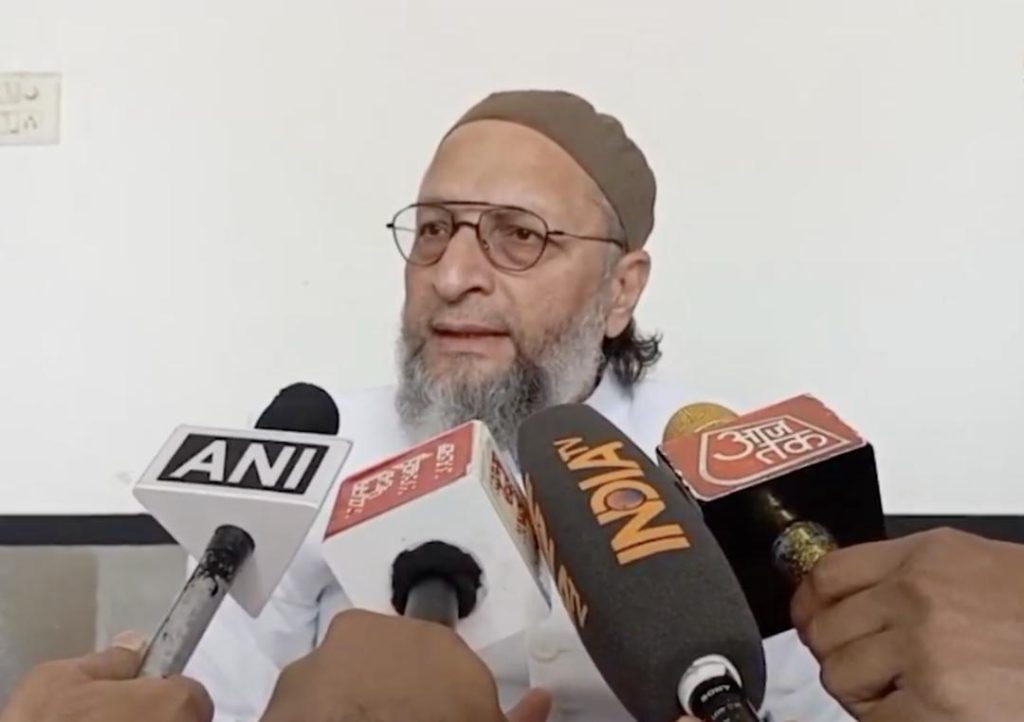
Arrest 4-5 Ministers & Govt is Gone: Owaisi on PM-CM Removal Bills
The ongoing debate over the Constitution (130th) Amendment Bill, which proposes to introduce a provision for the removal of the Prime Minister, Chief Ministers, and ministers arrested for at least 30 days, has taken a new turn. AIMIM chief Asaduddin Owaisi has expressed his concerns over the proposed bill, stating that it could have far-reaching implications on the functioning of the government.
Speaking at a press conference, Owaisi said, “Just arrest four-five ministers, and government is gone.” His statement is a stark reminder of the potential consequences of the proposed bill, which aims to empower the President to remove the Prime Minister and other ministers in the event of their arrest.
Owaisi’s concerns are not unfounded. With the proposed bill, the President would have the authority to remove the Prime Minister and other ministers if they are arrested for at least 30 days. This raises questions about the accountability of the Prime Minister and other ministers, who would be subject to the whims of the President.
Moreover, the bill would also provide the President with the power to appoint an interim Prime Minister or Chief Minister, which could potentially lead to a power vacuum. This is a worrying trend, as it would undermine the democratic process and put the country’s stability at risk.
Owaisi also questioned the necessity of the proposed bill, stating, “What is this? This is not a solution to the problem. This is not a solution to the issue of corruption.” He argued that instead of focusing on the removal of individuals, the government should focus on addressing the root causes of corruption and ensuring accountability.
The AIMIM chief’s concerns are shared by many experts, who argue that the proposed bill is a step in the wrong direction. The bill’s proponents argue that it would help to curb corruption and ensure accountability, but Owaisi and others believe that it would create more problems than it would solve.
In fact, the bill’s provision for the removal of the Prime Minister and other ministers arrested for at least 30 days has raised questions about the due process of law. The bill does not provide any clear guidelines on how the President would determine whether the Prime Minister or other ministers are guilty of corruption or other offenses.
Moreover, the bill’s focus on the removal of individuals rather than addressing the systemic issues of corruption and nepotism is a major concern. Instead of punishing individuals, the government should focus on creating a transparent and accountable system that prevents corruption from happening in the first place.
The proposed bill has also raised concerns about the erosion of the Prime Minister’s powers. While the Prime Minister is the head of the government, the proposed bill would give the President the power to remove the Prime Minister at will. This could create a power vacuum and undermine the stability of the government.
In conclusion, Owaisi’s statement that “just arrest four-five ministers, and government is gone” highlights the potential consequences of the proposed bill. The bill’s provision for the removal of the Prime Minister and other ministers arrested for at least 30 days raises questions about accountability, due process, and the stability of the government.
As the debate over the proposed bill continues, it is essential to remember that the government should focus on addressing the root causes of corruption and ensuring accountability, rather than creating a system that is prone to abuse. The proposed bill is a step in the wrong direction, and it is crucial that all stakeholders work together to create a more transparent and accountable system.






